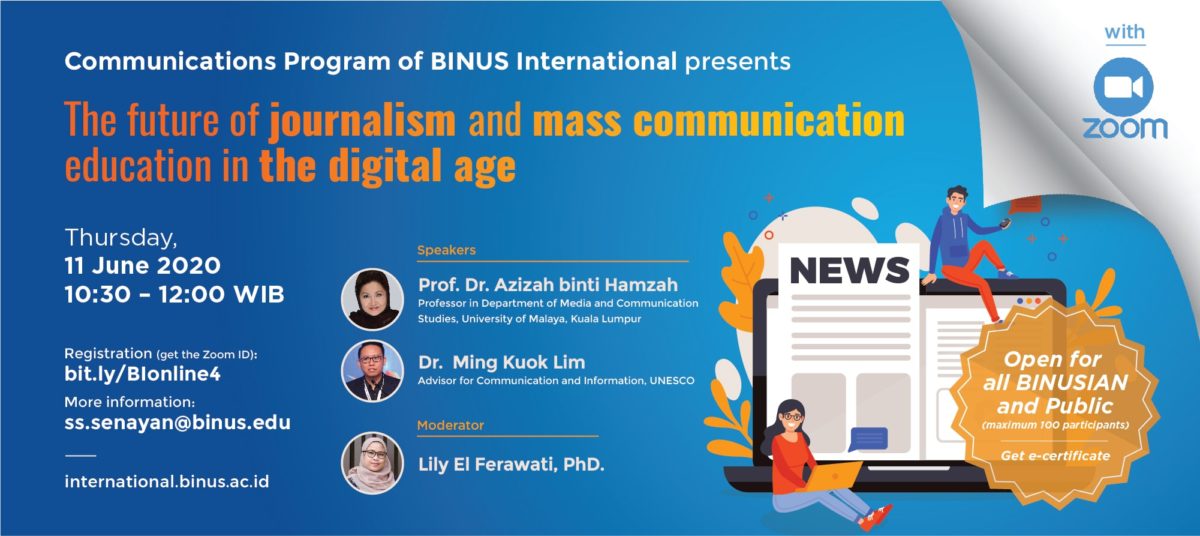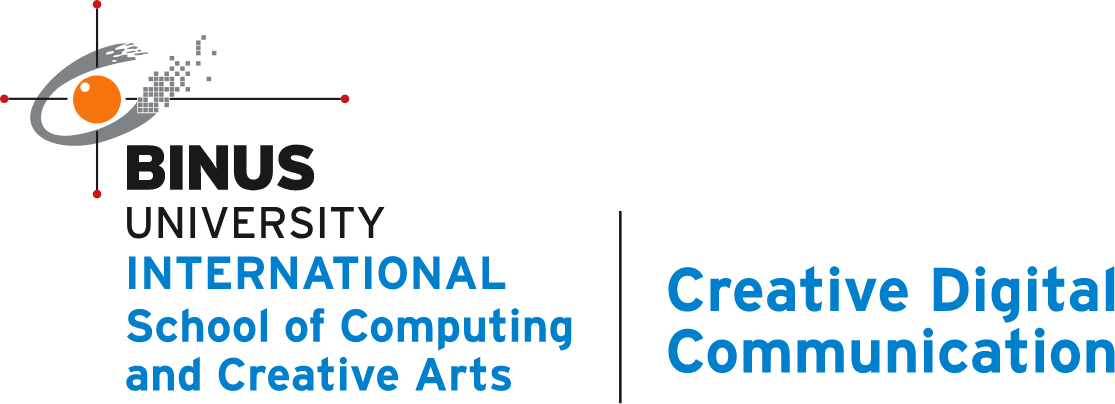Webinar: The Future of Journalism & Mass Communication Education in The Digital Age

On June 11, 2020, Communications Program at Binus University International hosted a webinar via Zoom, inviting two international guest speakers. The first speaker is Dr. Ming-Kuok LIM, the Advisor for Communication and Information for UNESCO Office in Jakarta while the second speaker is Prof. Dr. Azizah Hamzah, a retired professor from the Department of Media and Communication Studies, University of Malaya in Kuala Lumpur. The Communications lecturer, Lily El Ferawati, PhD. became the moderator for the webinar.
In the webinar, Dr. Lim explained about the ubiquity of media capture that controls the world today. The media capture, as he defines, is “a form of media control that is achieved through systematic steps by governments and powerful interest groups.” This media capture, if it is abused, it can cause some implication such as regulatory mechanisms governing the media, state-owned or state-controlled media operations, public funds used to finance journalism, and
ownership of privately held news outlets.
At the same time, the world faces a new era of information disaster where misinformation and disinformation are spread rapidly through personal digital devices. At worst, journalists are no exception by which they also prone to creating fake news. According to Dr. Lim, journalists should not enter into fake news circulation because “if it is news, it cannot be fake. If it is fake, it cannot be news.
if it is news, it cannot be fake. If it is fake, it cannot be news – Dr. Lim Ming Kuok, Unesco Indonesia
To address the webinar topic, Dr. Lim advised the participants to stay true to yourself and always maintain integrity when doing journalist work. In addition, journalists must cover speak for the truth and always cover both sides.
As an expert in Media studies, Prof. Azizah talked about how the discipline is still relevant in the current scenes of digital ubiquity. She further explained that Media and Communication Studies exist to answer the social demand of experts in information and data circulation to keep the society well-informed.
To be a media expert, students need to have critical thinking and concerns about social issues as well as be competent in Industry 4.0 skills, she added.
To be a media expert, students need to have critical thinking and concerns about social issues as well as be competent in Industry 4.0 skills. – Prof Azizah Hamzah
Around 70 people ranging from students to university lecturers and journalists joined the international webinar that was held by the program for the first time.
A short biography about the speakers.
Dr. Lim has assisted Member States in documentary heritage preservation and policy within as part of the Memory of the World programme. He has been involved in the global campaign to strengthen and raise awareness on freedom of expression, press freedom, the safety of journalists and the issue of impunity. The Fulbright Scholar is part of the team at UNESCO which supports capacity building for journalists, advises on media policy, and expanding journalism curricula to reflect the new Sustainable Development Goals (SDGs).
Meanwhile, Prof. Azizah is currently serving post-retirement teaching in Department of Media and Communication Studies, University of Malaya. She got her BA from the University of Malaya and went to University of Stirling, UK for her Master and doctorate degree. She has served as a lecturer from 1989, teaching various courses including news writing and editing, communication theories, media in the global and local context and so on. Before joining university of Malaya, she worked as the managing director for Malaysian Edition of the UNESCO COURIER.
Contributor: Lily El Ferawati, PhD.
Editor: Lily El Ferawati, PhD.

